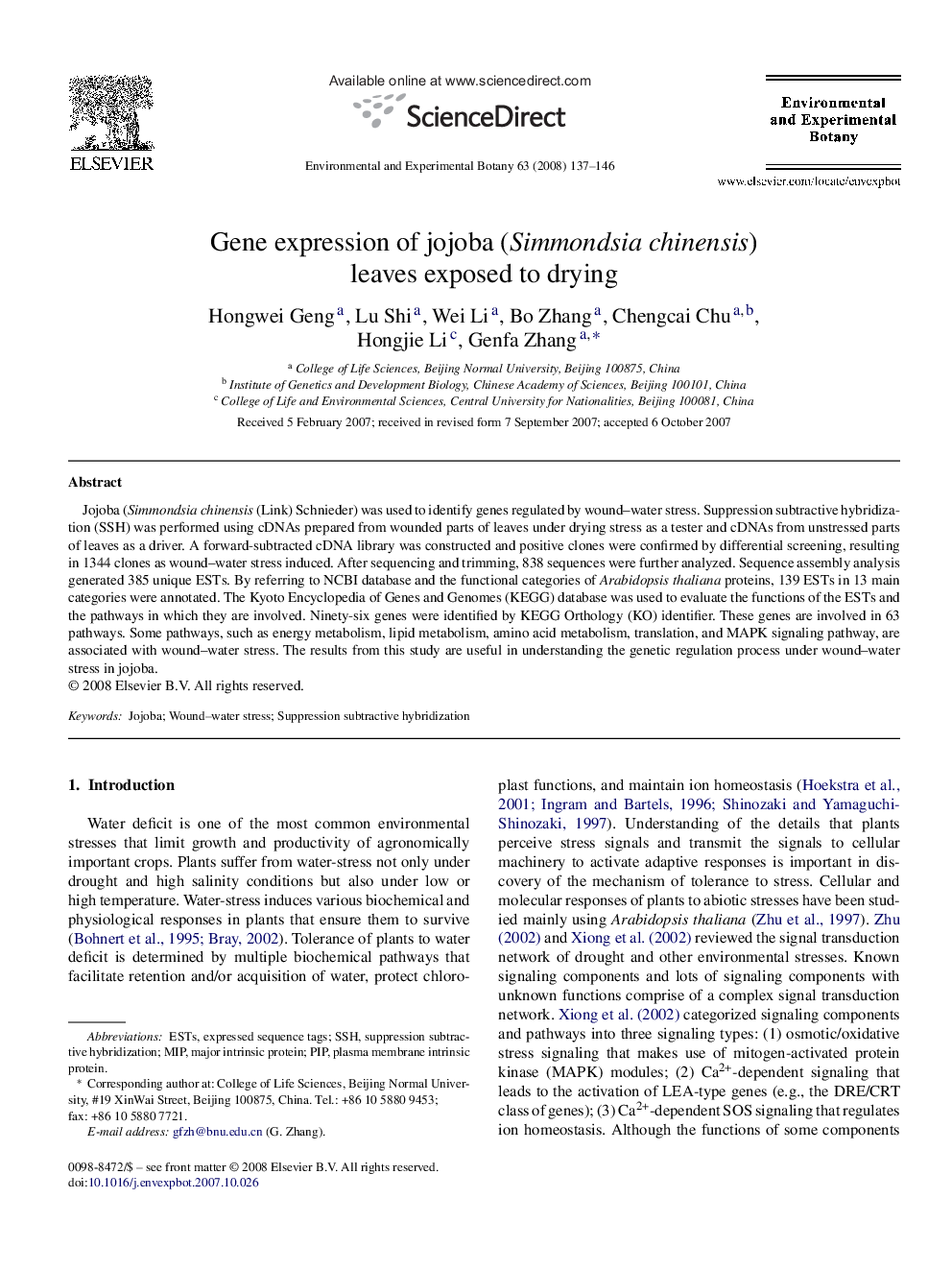| Article ID | Journal | Published Year | Pages | File Type |
|---|---|---|---|---|
| 4555285 | Environmental and Experimental Botany | 2008 | 10 Pages |
Abstract
Jojoba (Simmondsia chinensis (Link) Schnieder) was used to identify genes regulated by wound-water stress. Suppression subtractive hybridization (SSH) was performed using cDNAs prepared from wounded parts of leaves under drying stress as a tester and cDNAs from unstressed parts of leaves as a driver. A forward-subtracted cDNA library was constructed and positive clones were confirmed by differential screening, resulting in 1344 clones as wound-water stress induced. After sequencing and trimming, 838 sequences were further analyzed. Sequence assembly analysis generated 385 unique ESTs. By referring to NCBI database and the functional categories of Arabidopsis thaliana proteins, 139 ESTs in 13 main categories were annotated. The Kyoto Encyclopedia of Genes and Genomes (KEGG) database was used to evaluate the functions of the ESTs and the pathways in which they are involved. Ninety-six genes were identified by KEGG Orthology (KO) identifier. These genes are involved in 63 pathways. Some pathways, such as energy metabolism, lipid metabolism, amino acid metabolism, translation, and MAPK signaling pathway, are associated with wound-water stress. The results from this study are useful in understanding the genetic regulation process under wound-water stress in jojoba.
Keywords
Related Topics
Life Sciences
Agricultural and Biological Sciences
Ecology, Evolution, Behavior and Systematics
Authors
Hongwei Geng, Lu Shi, Wei Li, Bo Zhang, Chengcai Chu, Hongjie Li, Genfa Zhang,
